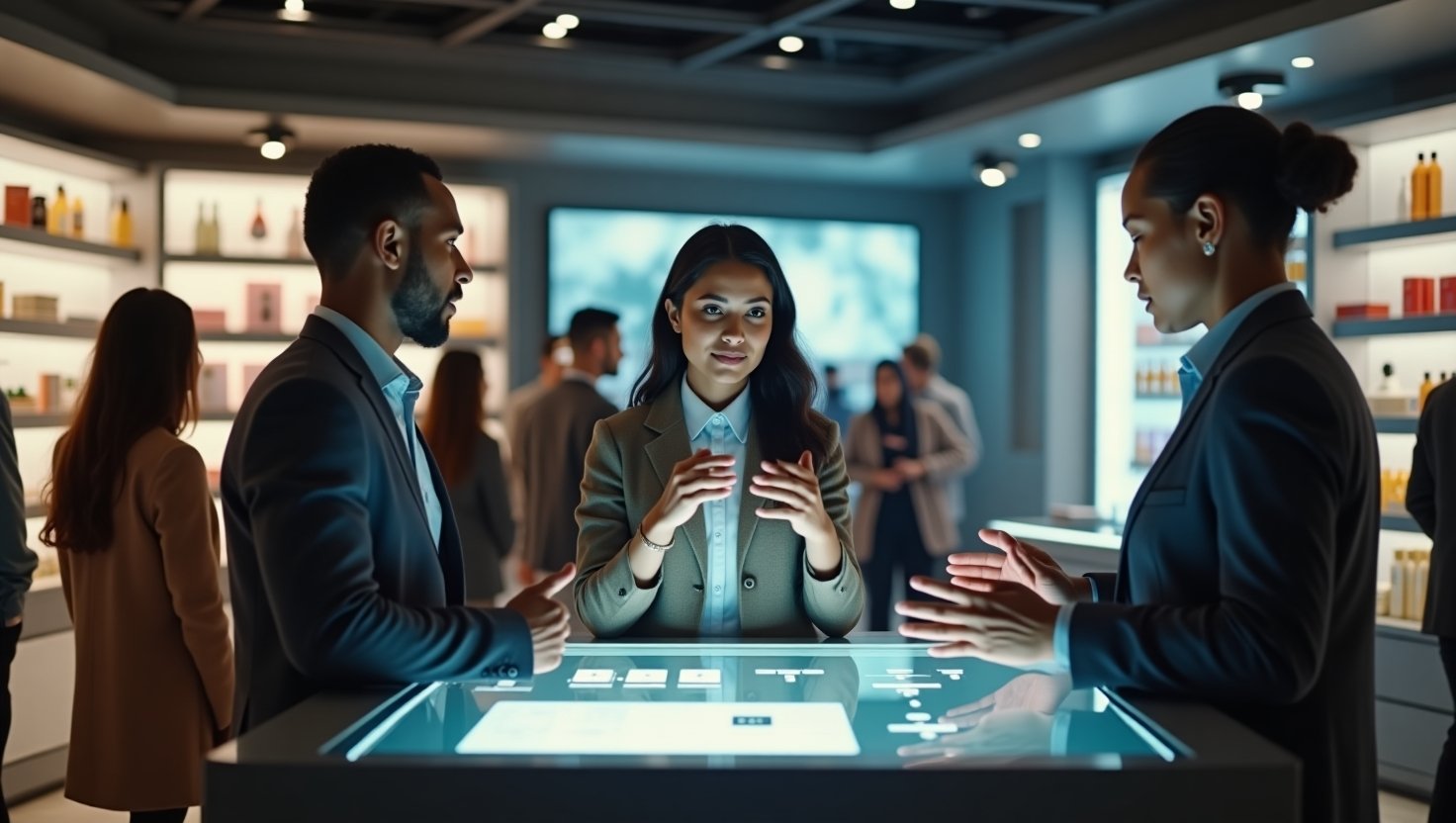The Future of Retail AI: Transforming Consumer Behaviors and Retail Strategies
As we march deeper into the era of digital transformation, artificial intelligence (AI) is charting a new course in the retail industry. This revolution promises not only to enhance the shopping experience but fundamentally reshape consumer behaviors and retail strategies. In this exploration of the future of retail AI, we’ll delve into the current landscape, examine consumer adaptations, and predict where AI may steer the retail sector.
AI’s Impact on Retail: From In-Store to Online
Retailers like Walmart have taken significant strides in integrating AI into both in-store and online shopping experiences. The advancement of AI tools is not simply about convenience; it’s about transforming the retail experience altogether. For instance, Walmart’s AI-powered app enhances customer navigation, highlights deals tailored to users, and even suggests purchases via an AI assistant named Sparky. Customers utilizing the Walmart app in-store spend 25% more on average, highlighting the potential for AI to drive sales and increase consumer engagement (source: Retail Dive).
The real impact AI has on retail mirrors a symphony orchestra — where each instrument (in this case, AI elements) must harmonize to create an experience that’s both seamless and captivating. From optimizing supply chains to customizing customer interactions, AI is the conductor guiding the evolution of shopping.
Consumer Adaptations: Navigating the AI-Driven Retail Landscape
As the retail environment transforms under the influence of AI, consumer adaptations are evolving in parallel. Much like the early days of e-commerce, where skepticism gradually gave way to online shopping norms, today’s consumers are becoming increasingly comfortable with AI-driven experiences.
Data from Accenture indicates that nearly two-thirds of consumers plan to use generative AI tools for their holiday shopping journeys this year. This trend demonstrates a growing trust in AI innovations and a shift towards more informed and personalized purchasing decisions (source: Retail Dive Podcast).
This shift can be likened to learning to ride a bicycle — initial hesitance soon gives way to confidence as consumers realize the benefits of AI, such as personalized recommendations and improved efficiency.
The Influencer Impact: Shaping Purchasing Decisions
In today’s digital age, influence extends beyond mere advertising, bending toward recommendations shaped by powerful AI-driven insights and partnerships. Influencers play a fundamental role in this ecosystem. As AI projects content that aligns with consumer behaviors, it bridges the gap between influencers and shoppers, making suggestions more relevant and, consequently, more influential.
Podcasts like Simon-Kucher’s \”The Discovery Shift: How AI and Influencers Are Changing Retail\” highlight how influencers, empowered by AI tools, significantly shape modern retail. These influencers, armed with AI-driven analytics, can sway consumer decisions more than traditional advertisements, feeding into the broader shifts in consumer behavior and expectations (Retail Dive).
The Future of AI in Retail: Predictions and Strategies
Looking forward, the future of retail AI promises further integration and innovation. Retail strategies must adapt to leverage AI’s full potential, focusing on personalized consumer experiences and efficient business operations. The true transformation calls for retailers to not only integrate AI but to innovate new forms of engagement, moving beyond static models to dynamic, real-time interactions.
However, as with any technological adoption, challenges persist. Privacy concerns, the need for ethical AI use, and the necessity for continual adaptation highlight issues retailers must address. Yet, for those willing to embrace change and invest in AI, the rewards could be substantial.
In essence, predicting the impact of retail AI is akin to forecasting the weather; while uncertainties exist, patterns provide valuable insights into future directions. Just as meteorologists rely on data and trends to anticipate the climate, retailers can use AI insights to forecast consumer needs and adapt strategies accordingly.
In conclusion, the future of retail, with AI at the helm, is an uncharted territory of possibility. As AI continues to evolve, the key to success lies in understanding its implications, embracing consumer behavior changes, and crafting retail strategies that are both innovative and adaptive.










